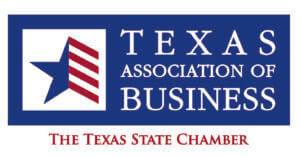From Classroom to Career: How Texas is Leading the Nation in Workforce Innovation
Last session, the Texas Legislature made a bold move to reshape the future of our state’s workforce development with the passage of HB 8. This landmark legislation introduced an innovative, outcomes-based funding model for community colleges, backed by an unprecedented $683 million investment. For the first time, the Lone Star State began rewarding colleges based on student success – whether that’s earning a degree or certificate, transferring to a four-year university or stepping directly into their careers. As the 8th largest economy in the world and home to 55 Fortune 500 companies, Texas must continue to invest in a dynamic, skilled workforce that fuels innovation, attracts global business and cements the Lone Star State as the nation’s premier hub for economic opportunity.
By 2030, over 60% of jobs in Texas will require a form of post-secondary education or training. Yet, fewer than 40% of Texas students earn a degree or workforce credential within six years of graduating high school. This workforce gap poses a serious problem – disqualifying young Texans from strong careers and making it increasingly difficult for employers to find qualified talent. With Governor Abbott declaring the expansion of career training an emergency item, Texas must act decisively to secure our economic future and preserve every student’s pathway to success.
Community colleges benefit businesses by providing a pipeline of skilled workers, offering affordable and accessible education, and fostering local economic growth through workforce development and business partnerships. The Texas Association of Business (TAB) is proud of the work our friends at the Texas Higher Education Coordinating Board (THECB) and Texas Association of Community Colleges (TACC) do for the state of Texas.
This session, the 89th Texas Legislature has the chance to bridge this gap – fortifying HB 8 through the passage of HB 2110. Building on the innovative funding model established by HB 8, HB 2110 enhances support for work-based learning and deepens investments in strategic employer partnerships. This bill is designed to uplift the Texas workforce, closing critical skill gaps and attracting highly qualified talent to fill long-vacant positions – ensuring our state’s businesses and workforce quality keep pace with our rapidly growing economy.
Specifically, HB 2110 seeks to:
- Redefine program evaluations by integrating specific credential criteria and factor in opportunity cost into considerations;
- Establish an earnings threshold to determine which credentials qualify for the Credential of Value (COV) designation; and
- Introduce flexibility to ensure that essential workforce credentials – particularity in healthcare, education and early childhood development – can be recognized as COV despite atypical measures.
Additionally, this legislation expands funding successful student transfers to four-year universities – an investment expected to increase the pipeline of degree-holding talent entering the Texas workforce. HB 2110 provides improvements built upon HB 8 – making certain that our state’s students are not only equipped for academic success but are also prepared to meet the demands of an increasingly competitive and innovation-driven business environment.
Megan Mauro, TAB’s Executive Vice President and Chief of Staff, testified before the Texas House Higher Education Committee this week in strong support of HB 2110, highlighting the legislation as a strategic component of TAB’s mission to sustain Texas’ pro-growth, pro-jobs business climate and uphold the principles of free enterprise that define the Lone Star State:
[EMBED VIDEO OF MEGAN’S TESTIMONY]
TAB is proud to champion forward-thinking policies that invest in Texas’ future generations—cultivating a workforce equipped not only with in-demand skills, but with the credentials that align with the evolving needs of our state’s economy. The passage of HB 2110 sends a clear message to the nation: Texas is leading the charge in aligning education with workforce demands. This investment not only strengthens educational pathways but also fuels the engine of our world-class business environment – ensuring the Lone Star State continues to lead, thrive and redefine excellence on the national stage.
TAB applauds Representative VanDeaver and Governor Abbott for their leadership in advancing this vision and driving Texas’ innovative future. By working in partnership, the Texas business community and Legislature can help safeguard long-term prosperity and ensure the Lone Star State remains the nation’s – and the world’s – most dynamic economic engine.
- Glenn Hamer, President & CEO, Texas Association of Business
###
